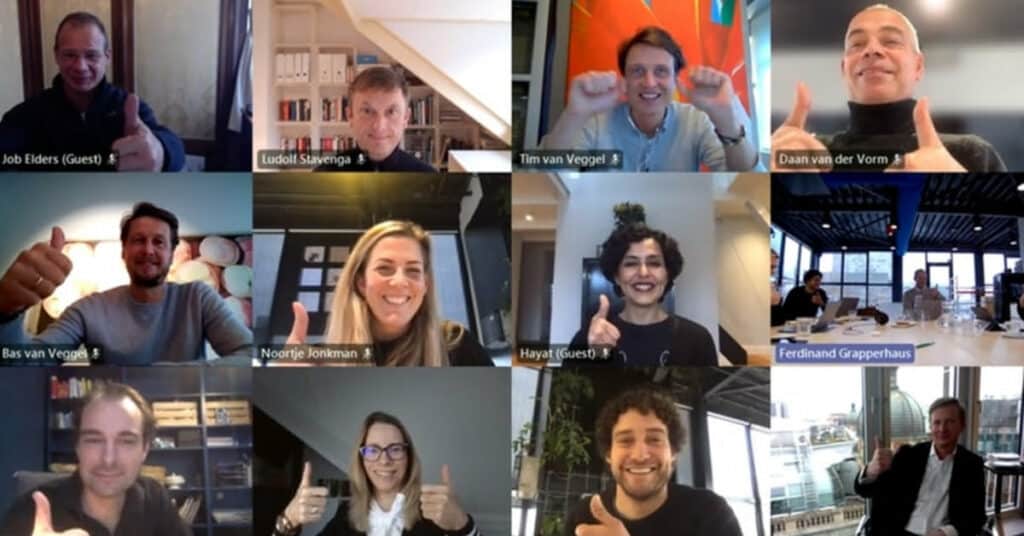With numerous countries, and organisations committing to carbon neutrality, zero-carbon buildings are finally getting the attention they needed.
According to the World Economic Forum, buildings are responsible for nearly 40% of global greenhouse gas emissions. Fortunately, the interest and investment in zero-carbon buildings is growing gradually due to various local and global initiatives.

Raised €4M growth capital
PHYSEE, a Delft-based company that develops coatings, solar, and sensor technology, has received €4M in growth capital for the first half of their Series A investment round.
The Dutch company got funding from Timeless Investments, SHAPE Capital, DWI Grundbesitz, and the European Research Fund. The dutch startup plans to scale up its technology after recently starting a sales partnership with two global glass manufacturers.
One of the new shareholders of the startup includes the German project developer DWI Grundbesitz, which intends to support PHYSEE with the rollout of SmartSkin sales in Germany. Sales in other countries are expected to follow quickly through the right collaborations.
30% more energy-efficient
PHYSEE is the first company in the world to succeed in developing facades that provide both energy and data, optimising the energy efficiency of buildings.
The primary technology developed by PHYSEE, called SmartSkin, makes buildings up to 30% more energy-efficient, and at the same time, significantly more comfortable for its users. Notably, the company has developed three products – the SmartSkin facade, the PAR+ coating, and the POWER+ coating.
Ferdinand Grapperhaus jr., CEO and co-founder of PHYSEE quotes, “We have been swimming against the tide for six years because we see that things can -and must be- done differently. However, we notice that many investors in the Netherlands often find disruptive and sustainable hardware innovations new and scary to invest in. This is why we are very grateful for the confidence instilled in us by our new shareholders. They take responsibility and are thus a driver for change. Together we are making a difference by scaling up this impactful technology.”
How PHYSEE was born?
PHYSEE was founded by two applied physicists,Ferdinand Grapperhaus, and Willem Kesteloo in 2014 who, during their graduation, found a way to generate electricity with transparent glass. According to the founders, they use creative, physical angles when looking at the buildings to see how they can optimise, using smart and sustainable innovations.
How SmartSkin technology works?
The SmartSkin technology is a combination of sensors, solar cells, and battery system integrated into the window frames. This technology analyses data, such as temperature, light, and air quality, using a self-learning algorithm that independently controls the building’s climate installations (such as sun blinds, lighting, ventilation, and air conditioning).
“We spend 90% of our time in buildings and for a more sustainable future, we need to develop and use them in innovative ways, both at home and in the office”, says Grapperhaus.
Coating to grow plant faster
On the other hand, the company also developed a coating solution to make plants grow faster with the same amount of sunlight. Named as transparent PAR+, it converts UV light into PAR light, allowing crops to grow 7% faster.
The Delft-based company will use a part of the funding to test together with the University of Wageningen on how much faster crops (such as tomatoes) grow on the same amount of land.
Daan van der Vorm, owner of SHAPE Capital and VORM Holding: “We have been involved with PHYSEE for several years and the speed at which they can tailor their innovation to the needs of the market is impressive and decisive for us. We like to invest in sustainable solutions that turn our sector upside down – the world can make good use of such players, especially now that the agricultural and real estate sectors have a great need for data-driven solutions. I am proud that we can contribute to this success as an investor and partner.”










01
From telecom veteran to Dutch Startup Visa success: The Jignesh Dave story